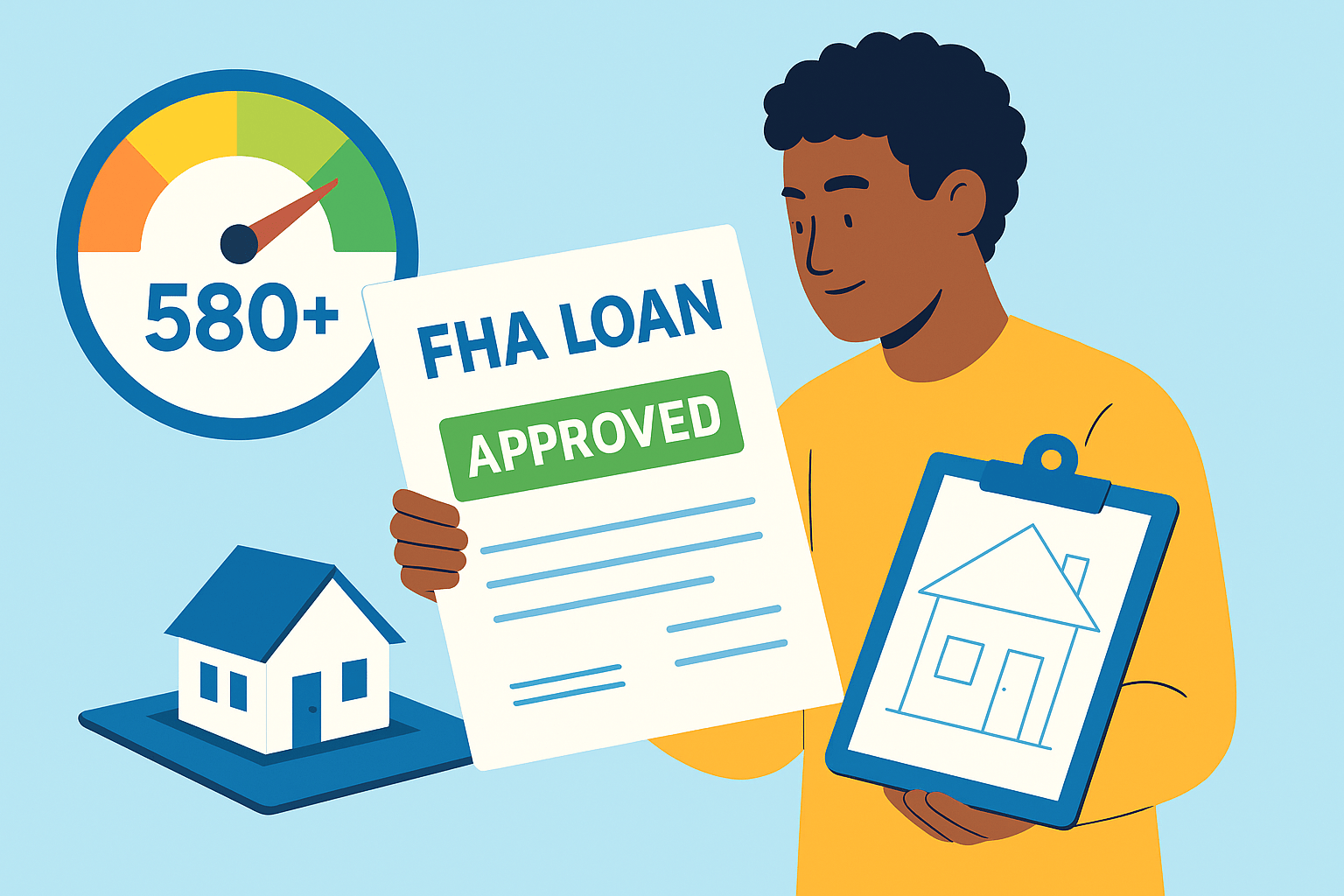Mortgage Credit Certificate First-Time Homebuyer Assistance Programs
Mortgage Credit Certificate: Michigan’s Hidden Gem for First-Time Homebuyers
Buying your first place in the Great Lakes State can feel like threading a canoe through rapids—exciting, but risky. Enter Michigan’s Mortgage Credit Certificate (MCC), a program that converts a chunk of your mortgage interest into a dollar-for-dollar federal tax credit. That means real savings, every single year you hold the loan. In this guide, you’ll learn how the MCC program works, who qualifies, and—most importantly—how to wield it to stretch your budget further than you thought possible.
Why the Mortgage Credit Certificate Matters Right Now
The Federal Reserve’s rate hikes have nudged Michigan’s average 30-year mortgage from roughly 3% in 2020 to around 7% by late 2023, according to Freddie Mac trends. Higher rates equal higher monthly payments—unless you find a lever to offset the cost. The MCC gives back up to 20% of your annual mortgage interest as a tax credit, effectively trimming the net rate you pay. Over time, that difference can feel like switching from a Detroit winter to a Grand Haven summer.
- Immediate cash-flow relief: Claim the credit on your W-4 and increase take-home pay each paycheck.
- Lifetime cap: Up to $2,000 per year for as long as you keep the loan.
- Portability: Re-issue the certificate when refinancing, so the benefit doesn’t disappear if rates drop later.
How Does the Michigan MCC Program Work?
The Michigan State Housing Development Authority (MSHDA) issues an MCC at closing. Think of it as a VIP pass you tuck behind your driver’s license—quiet but powerful. When you file taxes, you calculate 20% of the mortgage interest you paid and subtract that number from your actual federal tax liability.
- Buy a qualifying home (price limits apply).
- Secure an eligible fixed-rate mortgage.
- Receive the MCC certificate number from MSHDA.
- File IRS Form 8396 each year to claim the credit.
Let’s break down a real-world example.
Scenario: Mary, a first-time buyer in Kalamazoo, borrows $230,000 at 6.75%.
Year-one interest: ≈ $15,037.
Tax credit: 20% × $15,037 = $3,007 (but capped at $2,000).
Mary’s net savings: $2,000 reduction on her federal tax bill for as long as she holds the loan.
That $2,000 could mean wiping out a car payment, funding a 529 plan, or simply breathing easier each month.
Who Qualifies for a Mortgage Credit Certificate in Michigan?
Eligibility mixes income limits, purchase price caps, and buyer status. Below is an at-a-glance checklist:
- First-time buyer status: You haven’t owned a principal residence in the last three years—unless the property sits in a federally designated “targeted area.”
- Income ceilings: Vary by county and household size. For example, a two-person household in Wayne County must stay under roughly $97,100 (2023 figures; MSHDA updates annually).
- Purchase price limits: Also county-dependent, typically ranging between $374,000 and $498,000.
- Primary residence: Vacation homes and investment properties do not qualify.
- Fixed-rate mortgage: Adjustable-rate loans and most bond-funded mortgages are ineligible.
Pro tip: Many buyers discover they qualify halfway through the process and retrofit the MCC. Avoid last-minute scrambles by discussing it with your loan officer before you sign a purchase agreement.
How Much Does an MCC Cost?
The fee in Michigan is 1% of the loan amount, capped at $2,000. While nobody enjoys extra closing costs, the math often favors paying the fee:
- $2,000 upfront cost ÷ $2,000 annual benefit = payback in a single tax season.
- The certificate remains effective for up to 30 years, subject to $2,000 annual cap.
In other words, you can turn a one-time fee into potentially $60,000 in tax savings.
People Also Ask
Does the Mortgage Credit Certificate affect my mortgage deduction?
Yes, but in a good way. The IRS requires you to reduce your itemized mortgage interest deduction by the portion used as a credit. For instance, if you paid $10,000 in mortgage interest and used $2,000 for the credit, you can deduct only the remaining $8,000. Most buyers still come out ahead because credits slash taxes dollar-for-dollar, while deductions merely shrink taxable income.
Can I combine an MCC with other MSHDA programs?
Absolutely. The MCC pairs seamlessly with MSHDA’s MI Home Loan and MI 10K DPA down-payment assistance products. The caveat? You must use a participating lender trained on the paperwork. Pairing programs can feel like juggling chainsaws; enlist a lender who’s done it before to keep all limbs intact.
What happens if I refinance or sell my home?
Sell within nine years and substantial gains? A federal recapture tax might apply, but most Michiganders sidestep it because incomes, rates, or prices rarely align to trigger the penalty. Refinance? You have one year after closing to request a Re-issued Mortgage Credit Certificate (RMCC) and keep the benefit alive. Skip that step and the credit disappears.
Micro-Story: The Royal Oak Chef Who Doubled His Patio Budget
Jamal runs a small farm-to-table bistro in Royal Oak. After the pandemic surge in patio dining, he dreamt of extra outdoor space at home for recipe testing and family gatherings. Using the MCC, Jamal shaved $2,000 a year off his tax bill. Over three years, he banked $6,000—enough to pay a local carpenter for a cedar deck plus a top-notch smoker. Now his backyard doubles as an R&D lab, and Friday dinners include brisket that melts like January snow on warm asphalt.
Step-by-Step Guide to Securing Your Michigan MCC
- Find an approved lender. MSHDA publishes an updated list monthly.
- Get pre-qualified. Confirm income and purchase price fall under program caps.
- Sign a purchase agreement. Ensure timelines accommodate MCC paperwork.
- Apply for the certificate. Your lender completes MSHDA Form MCC-3; you sign Form MCC-5 at closing.
- File IRS Form 8396 each year. Save your annual Mortgage Interest Statement (Form 1098) from the lender.
That’s it—no extra renewal hoops, no annual re-certification.
Advanced Hacks: Squeezing Every Dollar from Your MCC
- Adjust your W-4: Rather than waiting for a refund, reduce withholding to free cash during the year.
- Combine with energy credits: Installing solar? Layer the 30% federal clean-energy credit on top of your MCC for a double tax win.
- Refinance smarter: Time your RMCC application early in the refi process; lenders often waive the extra fee if you ask upfront.
- Document discipline: Store MCC paperwork with your deed. Future buyers—and auditors—will thank you.
FAQ
How long does the application process take?
Typically three to four weeks, running parallel to your mortgage underwriting.
Is the MCC refundable?
No. The credit can only reduce your federal tax to zero. Unused portions may carry forward for up to three years.
Can veterans bypass the first-time buyer rule?
Yes. Qualified veterans enjoy an automatic waiver under the Heroes Earnings Assistance and Relief Tax Act.
Are condos eligible?
Most warrantable condominiums qualify, provided they meet FHA or FNMA guidelines.
Does the MCC affect state taxes?
No; the benefit is strictly federal, but lowering federal tax can still boost overall cash flow.
Ready to Turn Taxes into Treasure?
The Mortgage Credit Certificate transforms mortgage interest from a necessary evil into a secret ally, trimming thousands from your tax bill without extra monthly cost. If you’re serious about buying in Michigan—whether a loft in Grand Rapids or a starter home in Marquette—our team of real-estate pros can plug you into MCC-savvy lenders and outline every step.
Explore More Blog Posts
Checkout more similar posts those will help you to choose better property.












 Profile
Profile Password
Password Saved Properties
Saved Properties Sign Out
Sign Out
 +0.01
+0.01
 -0.15
-0.15

